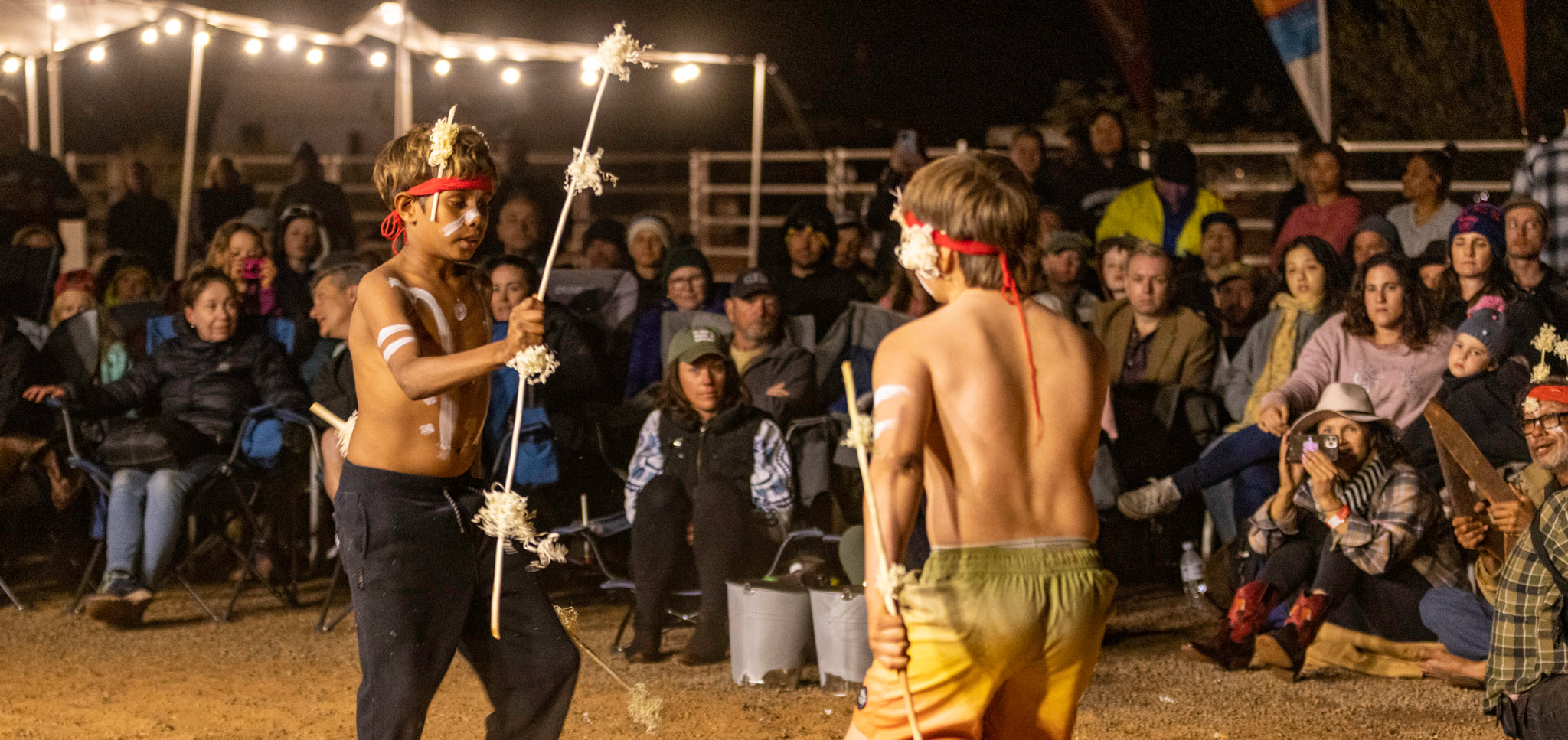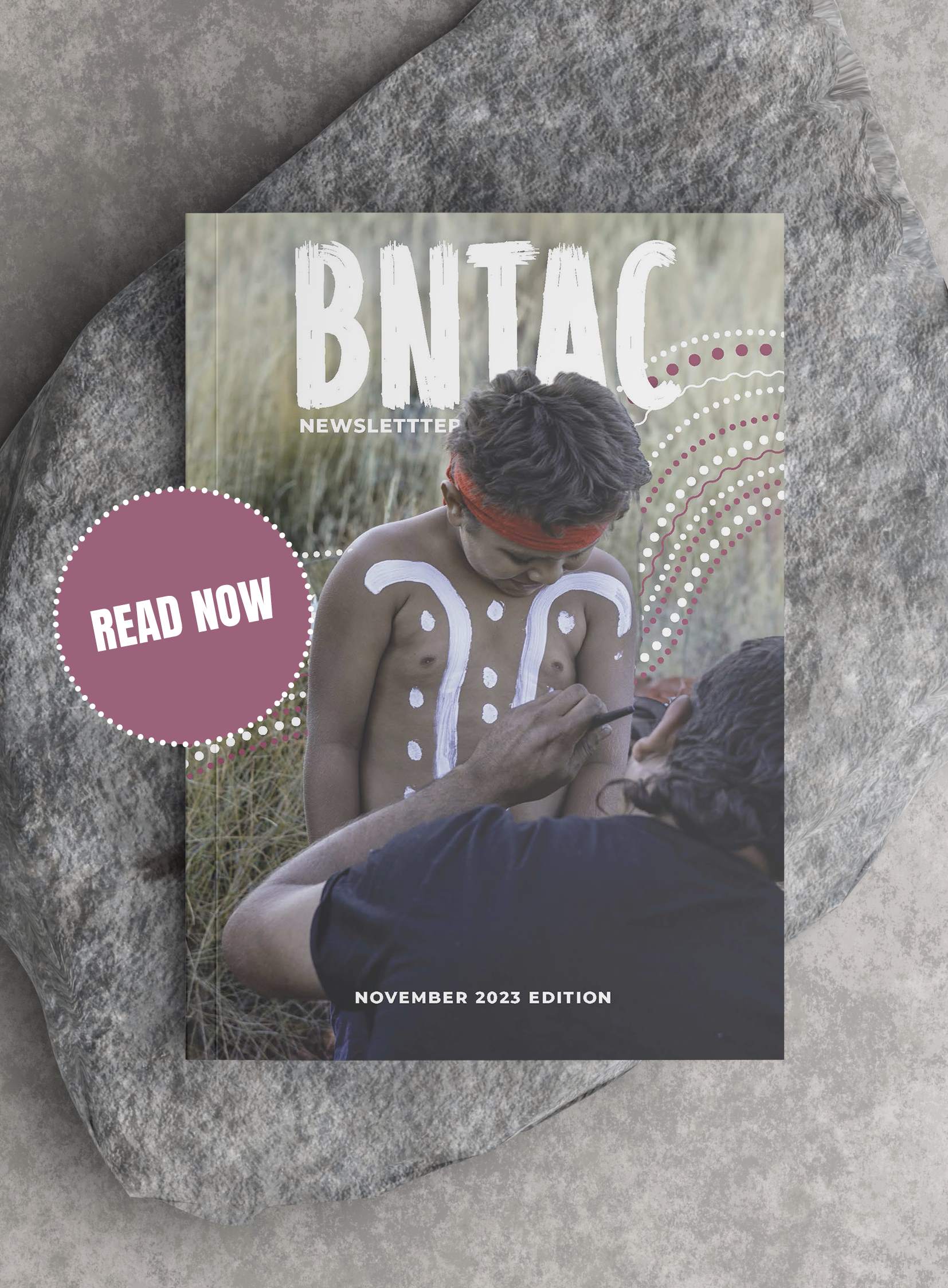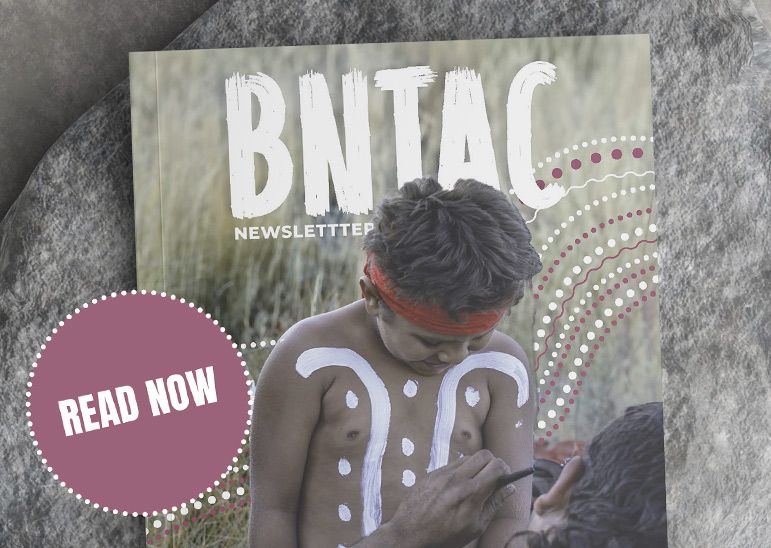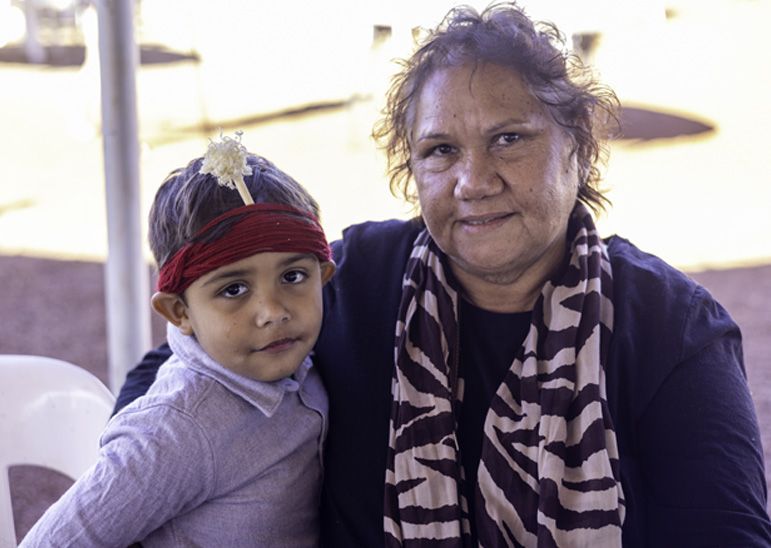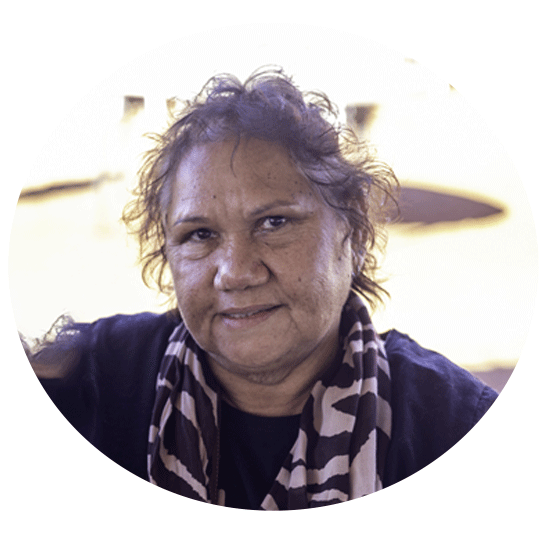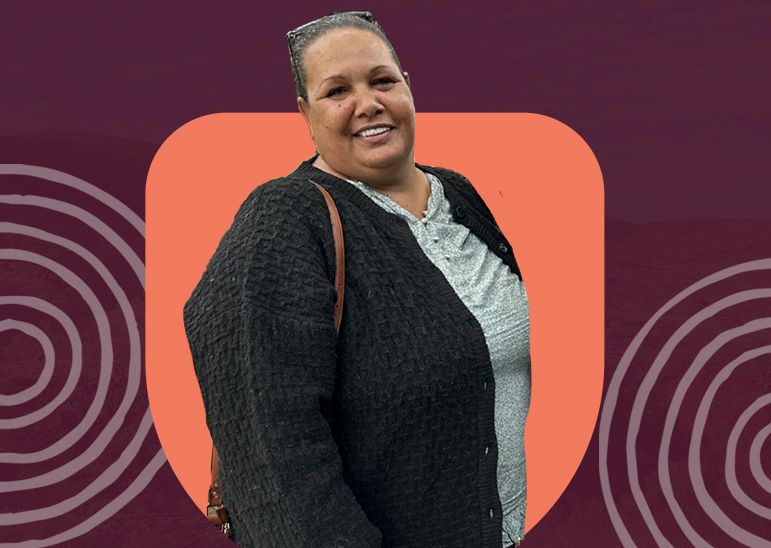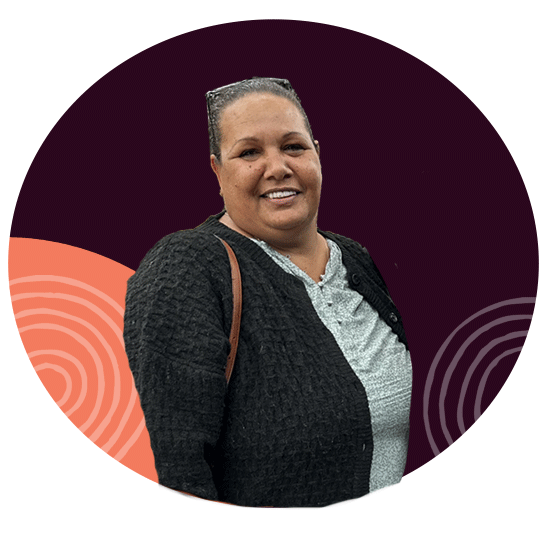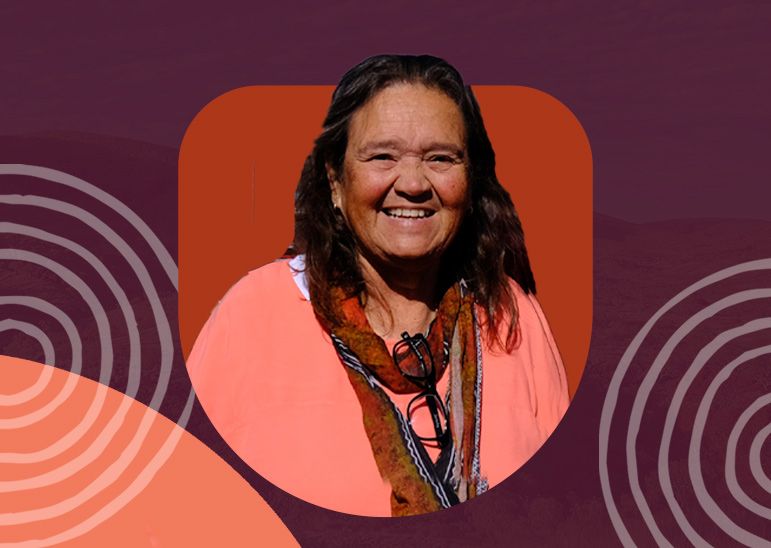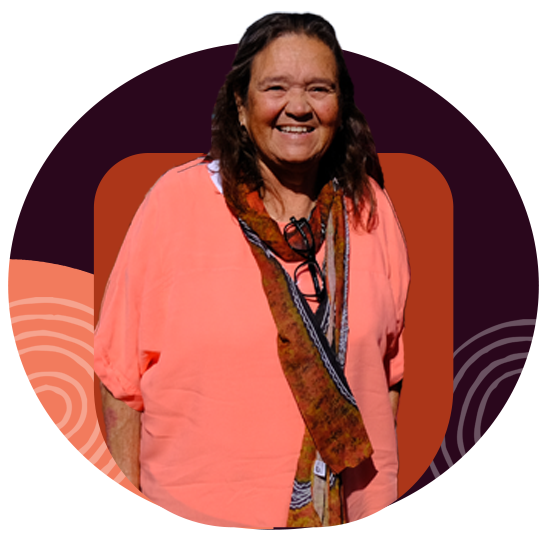As we took in the beauty of Karijini National Park during the Karijini Experience, we had the honour of talking with Banjima elder Michelle Ingram. During the enlightening conversation, we delved into the significance of this year's NAIDOC theme, "For Our Elders." Michelle touchingly expressed her deep appreciation for the role of elders in families and their invaluable contributions to passing on history and culture.
What does the theme “For Our Elders” mean to you?
For me, it's the recognition of how important elders are to families, and for the work that they've done and the way they pass on history because we never had the written word to pass on to the kids and that was the way our stories and culture were passed on. You want people to understand that this is the way our culture works. This is how the elders are, this is what they're there for and to recognise them and show that respect to them.
How does it feel to be able to impart your knowledge and what you've learnt down to your grandchildren?
It's something that was taught to me from my grandparents, my mother and father and even my uncles and aunts, they've always taught me the main thing is respect your elders, listen and learn. These are the things that I've passed on to my kids and all my siblings do the same, that's what they feel is important and the fact that I can be recognised as an elder and that respect is shown to me is very heartwarming and we've passed enough on to the kids that they are going to be able to do the same thing. That's the way our culture will keep going but we have to pass it on.
Was there a story that one of your elders have told you that has influenced you the most?
I think for me it is the story about my dad being taken away, it makes me want to keep my family really close, just the heartbreaking thing of him saying he can remember his mum standing there crying, calling out for him and these people taking him away. He used to say “I was only a little boy but I remember that” and then when I watched the movie Rabbit Proof Fence, I cried and cried because it just, I could see it, that was my dad, you know, that’s what happened to him and the thought of my children being taken away like that would be horrendous. My mother had a different childhood, she had a grandmother who used to pack them up, so if she got wind of the welfare coming she’d pack the kids, her grannies and kids up and she’d take them bush and hide them so they were able to live on the station and mum got to go to school too whereas my father didn’t. When they met she was able to get married and have all of us kids so it’s, I guess the two different sides of the upbringing of my parents. That story is quite heartbreaking to me.
How does your family keep culture strong?
Dad was very good at art, very good and I feel that he’s passed on to us his connection to his home country through his art because when we were kids growing up, I was telling the people and the ladies at the Elders Tent today that he used to bring us up here through the Pilbara, even though we lived in Carnarvon because he drove a truck through the Pilbara, to go to Tom Price and he used to go to Dampier, across to Newman, up to Port Hedland and during the school holidays he would make sure that he brought two of us at a time with him, and it was, we realised, to connect us with the country even if we didn’t find many family members he was connecting us with his and our country, and we’ve always had that, you know, always had that feeling that this is where we come from and I just get that feeling every time I come back here as well.
It is a feeling of coming home and we just love it and just connecting with family now and I mean even my kids do now, my son came up the other day with his two friends and they came here to Karijini and he said “you know , I could feel it, Mum, the connection”
What was life like for you growing up?
When we were living and growing up in Carnarvon and most of my mum’s family came to live in Carnarvon our grandparents used to take us to the stations with them and we learned some culture from them. The paintings my Dad used to do were what he remembered from here and we used to sit and look at his pictures and this is what I guess he was passing on to us but my grandparents, they taught us how to help with the work they did on the stations like the fencing and helping in the shearing sheds, my grandfather and uncles were shearers too. We’d have to get out there and help. When you di the fencing you had the poles there and the wire on a reel, one of us would get the wire and run it through the holes in the poles all the way down the fence line and somebody else would do the next one. So they taught us the importance of hard work and so did Dad by helping him on his trips.
My grandmother, she taught us to cook damper and roo tails in the ground. I remember one time we were out on the station , my grandfather and uncles were doing the fencing and she said ‘We’ll go and cook the damper now’ and she was showing us how to make the damper and put them in the fire and these big, black clouds were coming up and Grandmum said ‘We might get a thunderstorm but we’ll see how this goes’ and sure enough, down it came, this rain so we all ran and got out of the rain and we said “What about the damper?” and she said “They’ll be right, we’ll see how the fire goes”. After the rain she went out and stoked the fire up and opened the coals and sure enough, those dampers were there all cooked and ready. She also taught us the importance of not taking from the land what you don’t need or shouldn’t move, and when we kill a kangaroo, we eat all of it. A big part of my childhood was always teaching us to have respect for our elders and that’s something I have always tried to instil in my kids and I feel that they have learnt that because it’s not only me and their father they respect, they respect their family elders but any elders and they’ve always been like that, even Jo, my sister and her family. I mean, Craig is an example of that, he’s just very respectful to all of us. I just loved growing up around here. While we didn’t live on country we got to come here with Dad and we got to stop along the way and swim in the creeks and rivers and just experience living on the land.
What do you think is the most important thing to teach the next generation?
I think the most important thing would be to be proud of who you are and follow the values you have been taught by your elders. And just that respect, it always for me comes back to that respect. You give what you expect to get back. You show respect, you'll get respect. You show kindness, you'll get kindness. And you show love, and you'll get love back. What you give, you get back.
Was there anything you wanted to add?
I guess NAIDOC this year, as I said, just the fact that elders are being recognised for the hard work they've done over their lives. I just would like to see that the kids of today really take it on board. It's not just a token thing, this is for life. This is what you do for life. You show that respect, and you'd be thankful that you have elders and role models like that. It's something that they would help, I guess, in them becoming better people.
I worked in the school for 24 years. The one thing I noticed is every now and again I will come across kids that I've worked with and the respect that they show me, and they're grateful for what I've done for them. And, you know, I think, well, what did I do? I sat there and helped you learn how to read, but, you know, I might have connected with you, your family. I tried to do that more than you think, connect with them, and give them a mum or an aunt or a grandmother in the school. The fact that they come and show me that, and that's very heartwarming. I would like that for all elders. If they've done some little thing for you, go and acknowledge it.
